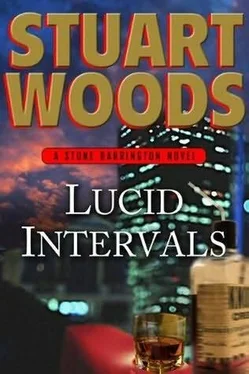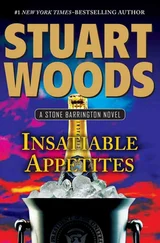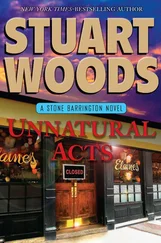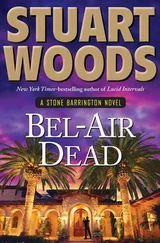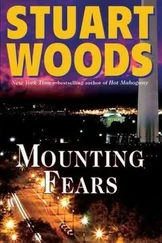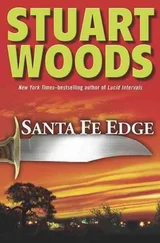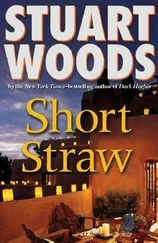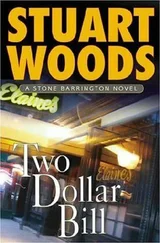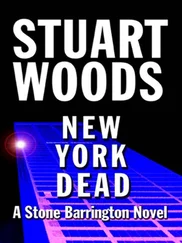“Because he was sitting on the toilet, reading a magazine, when she jumped. When he was finished there, he got dressed and went to look for her, but she was gone. He thought she had gone shopping, because that’s what she usually did.”
“How can he prove that?” she asked.
“Mr. Fisher will agree to a colonoscopy,” Stone replied.
Dino burst out laughing.
“From speaking to Mr. Fisher a few minutes ago, I have reason to believe that your detectives, if they bother to check, will find that Ms. Seidman’s fingerprints will be on the sliding glass door to the terrace but not Mr. Fisher’s, because he didn’t touch it after the maid came and cleaned it yesterday.”
“We’ll look into that,” Ms. Rentz said.
“You may look into anything you like, and my client and I will cooperate with your investigation, but the fact remains that you don’t have enough evidence to arraign him, let alone convict him, and the other available evidence will support my client. For that reason, I’d like him released immediately.”
“Mr. Barrington has a point,” Dino said. “We can always arrest him later if new evidence comes up.”
Ms. Rentz looked at the floor, then at the ceiling. “All right,” she said to Dino, “spring Mr. Fisher.” She stood up and grabbed her briefcase. “But this isn’t over.”
Stone stood and offered his hand. “Let us know whatever else you need from us.”
She shook his hand and left.
“Nice work,” Dino said.
“You don’t think Herbie tossed her, do you?”
“Nah, but it’s good to see you break a sweat.”
THE FOLLOWING MORNING Stone was at Strategic Services promptly at eight and was shown into Hackett’s large corner office, where the man was polishing off a full Scottish breakfast. He sent the tray away and pressed a button on his phone. “Mike, join us, will you?” He hung up. “You remember Mike Freeman, Stone; we played tennis?”
“Of course.”
Freeman entered through a door between his office and Hackett’s and shook Stone’s hand, and the three men moved to a seating area by the window.
“Stone, we want to give you something of an overview of Strategic Services,” Hackett said. “Mike is my right-hand guy, and he’s here to tell you anything I forget.”
“Shoot,” Stone said.
“We’re best known for providing corporate security,” Hackett said. “We have a dozen offices around the world, and if we get a call from a client telling us he’s paying a visit to, say, Hong Kong, our people and vehicles are at the bottom of his jet stair when he arrives to greet him and take care of him while he’s there. That service is a big revenue producer for us, and we’ve never lost an executive yet, not to a kidnapping or a roadside bomb. Sometimes, though, an executive is kidnapped while not in our custody, and in that case we handle negotiations for his release.”
Freeman spoke up. “Or, if necessary, send in an extraction team. We employ large numbers of former Special Forces and Navy SEAL personnel, who are very good at that.”
Stone couldn’t place Freeman’s accent, and he must have been looking at him oddly.
“I’m Canadian,” Freeman said, smiling. “Montreal, so my English sometimes has a French inflection. You’re not the first to wonder.”
“Also,” Hackett continued, “we provide armed guards to government agencies both at home and abroad. The State Department is an especially good client.”
“Do you provide meals and domestic services for the armed forces as well?” Stone asked.
“No, I have no interest in the catering business, even on that scale. We’re strictly security. We also have a division that installs security systems in corporate and government offices, the most sophisticated systems in the world. The new HD cameras are just wonderful. We can now use facial recognition software on the images we get from a camera no bigger than a golf ball.”
“That’s impressive,” Stone said.
“Do you have a good security system at home?” Hackett asked.
“Yes, I have an ex-cop who does that work for me.”
“Good. Just remember, we’re here if you need us.”
Hackett continued through the morning, outlining to Stone the depth and breadth of his company, from the armored vehicle business to investigative services. “You may have noticed,” Hackett said, “we can find out just about anything about anybody. That is a particularly important service for corporate boards these days, as any hint of scandal in a potential executive’s life can turn up on the Internet at any moment.”
Finally, they broke for lunch, which was brought in on a rolling table.
“Everything all right for you at the Plaza?” Hackett asked.
“Just perfect,” Stone replied. “Thank you for the shelter.”
“Eduardo Bianchi is an old friend of mine,” Hackett said, “and it distresses me almost as much as Eduardo that his daughter is in such a state.”
Stone had been wondering how Hackett had known that he and Dolce had been briefly married, and now he knew.
“Did sight of my service record make any impression on Dame Felicity?” Hackett asked.
“I can’t comment,” Stone replied, “but it made an impression on me.”
AFTER LUNCH, STONE’S briefing session continued until mid-afternoon. Hackett showed him to the elevators. “I’ll have an assignment for you before long. In the meantime, the Mustang is there if you need it.”
Stone walked back to the Plaza, enjoying the afternoon. At the hotel there was a message from the Assistant District Attorney, Carla Rentz, and he returned the call.
“We’ve completed our investigation of Sheila Seidman’s death,” she said, “and I agree that there is insufficient evidence to prosecute Mr. Fisher.”
“Insufficient evidence?” Stone asked. “You mean no evidence at all, don’t you?”
“All right, all right, no evidence. Her prints, not his, were on the sliding door, and that did it for my investigators. Mr. Fisher is off the hook.”
“I’ll let him know,” Stone said. “Thanks for calling.”
“Would you like to have dinner sometime?” she asked.
Stone was stopped in his tracks for a moment. “I have a guest in town at the moment, but maybe in a week or two.”
They exchanged cell numbers.
The Plaza was boring. Felicity sent to her office for a computer system, and after it arrived at the hotel she was mostly fully occupied while Stone watched old movies on TV and talked to Joan on the phone.
“Herbie came by,” Joan said. “He was pitifully grateful to you for getting the murder charge dropped.”
Stone sighed. “Well, that’s what he pays me for. I thought he was a fool for giving me such a large retainer, but I’m beginning to suspect I’m going to earn every buck.”
“Nothing unfair about that,” Joan said.
“Seen anything of Dolce?” Stone asked.
“If I had, she’d be dead,” Joan replied. “I’ve been to the range a few times to practice my shooting.”
“Please do not shoot anybody,” Stone said, “not even Dolce.”
“Why not?”
“Because it’s a lot more trouble than not shooting anybody. Talk to you later.” Stone hung up.
Across the room Felicity was just finishing a call. “Well,” she said, hanging up, “we found Hackett’s old colonel just as you said, at his cottage in Sussex.”
“And…?”
“He remembers hosting Hackett at lunch one day and drinking a lot of port, but he doesn’t remember giving him the dossier; maintains he was too drunk.”
“He admitted being drunk at lunch, but wouldn’t admit giving Hackett his dossier?”
“My man believed him about being too drunk,” she said. “Looks like we’re at a dead end.”
Читать дальше
